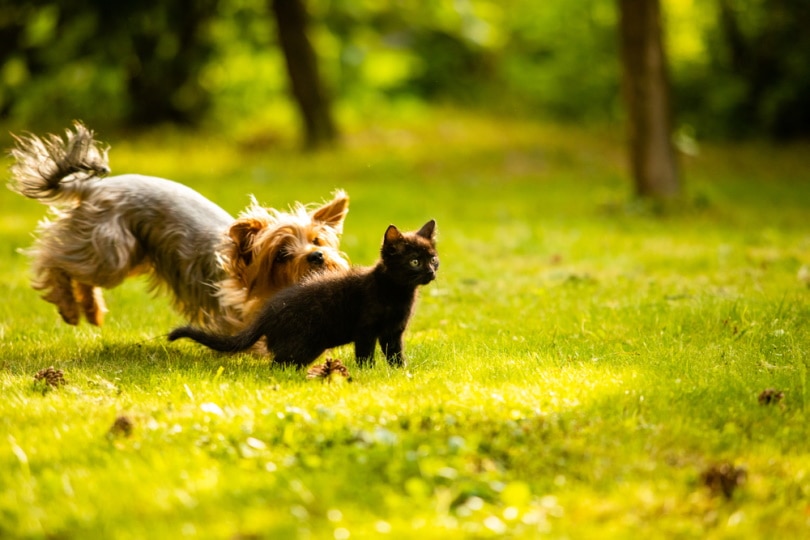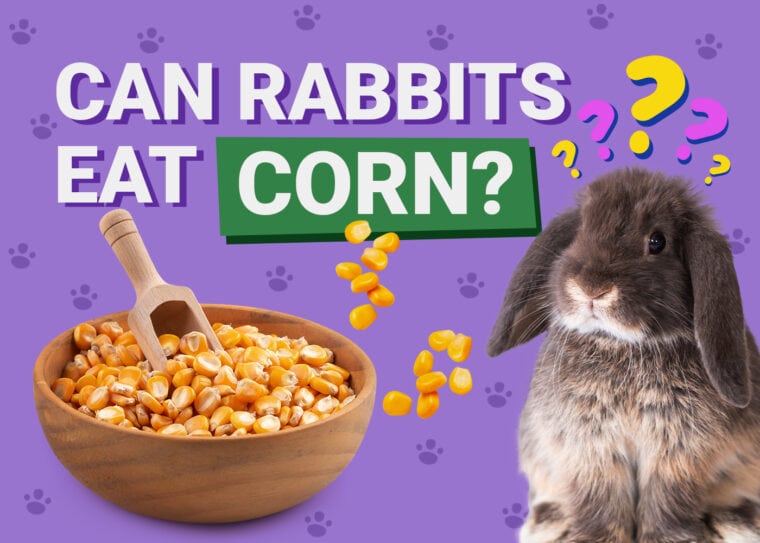
Click to Skip Ahead
Rabbits require specialized diets to remain healthy. One of the most problematic types of food for rabbits is high in carbohydrates, like corn, because it disturbs the harmony of your rabbit’s digestive bacteria. This can lead to diarrhea and other gastrointestinal issues. Corn is high in carbs and unhealthy for your rabbit.
Even pellets that contain corn can be harmful to your rabbit. To learn more about the potential ramifications of an improper diet and how to provide the best food for your pet, keep reading below.

How Can an Improper Diet Affect Rabbits?
If your rabbit is not being fed properly, some concerning health conditions may arise.
Obesity
Excessive body weight is a significant problem in domesticated rabbits. Some breeds are predisposed to developing obesity, but middle-aged rabbits are often more likely to become overweight.
To determine whether your rabbit is obese, you can give it a physical exam. If you struggle to locate your rabbit’s ribs beneath the layer of fat, your pet is likely obese. To treat your overweight rabbit, consult your vet. You will likely need to be more careful about feeding your rabbit a strict diet, which your vet can help you develop.
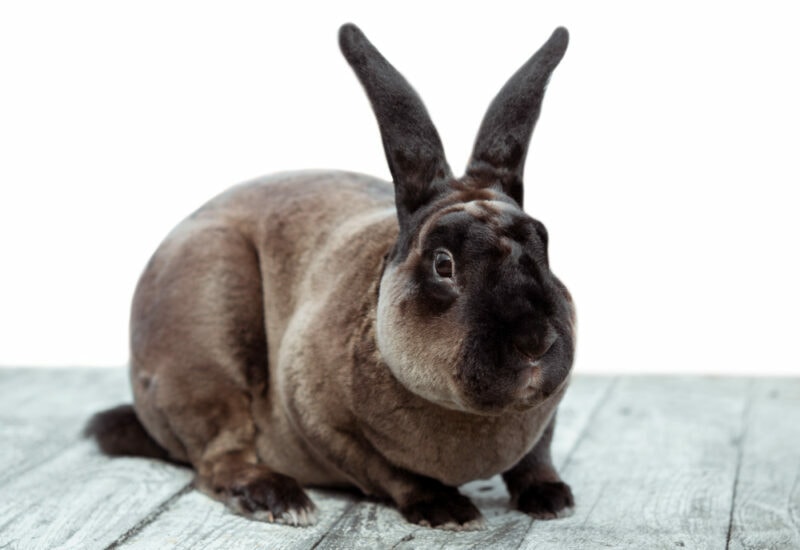
Gastrointestinal Stasis
Another concern with feeding your rabbit an improper diet is gastrointestinal stasis. Gastrointestinal stasis is a condition in which the passage of food through the gastrointestinal tract becomes halted. This is usually due to a significant change in the bacteria in your rabbit’s digestive system.
Gastrointestinal stasis is a serious condition. If left untreated, your rabbit can grow sicker and eventually experience organ failure and death.
Concerning Weight Loss
An unhealthy diet can lead to malnutrition, which can cause concerning amounts of weight loss. If your rabbit loses 10% or more of its body weight, you have a serious cause for concern. Reach out to your vet immediately to devise a treatment plan.
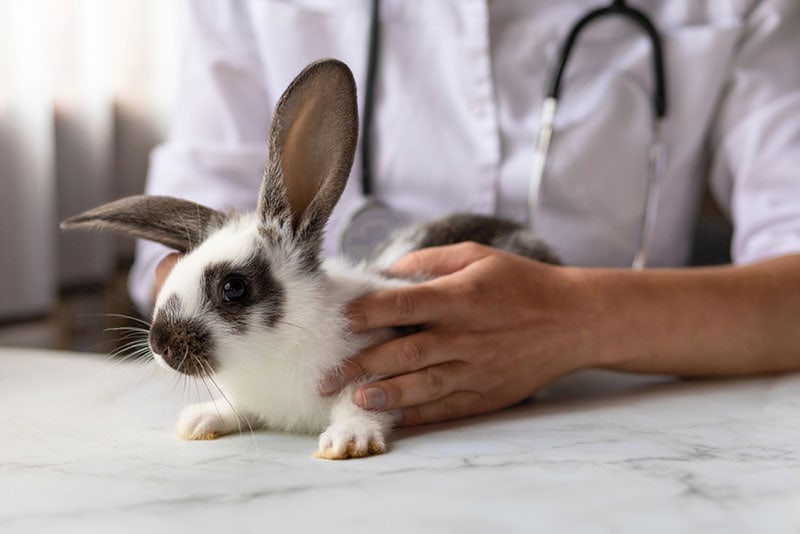

What Is the Ideal Diet for a Rabbit?
To avoid the severe health complications that a poor diet can lead to, it is essential that you feed your rabbit a healthy diet. Most of your rabbit’s food should be comprised of grass-based hay. Fresh, leafy greens are another vital part of a turtle’s diet, but pellets should only account for 5% or less of your pet’s daily meals.
Hay
Hay is essential to your rabbit’s regular diet. It stimulates your rabbit’s natural chewing behavior, wears down their teeth, and minimizes the chances of dental disease. Hay is also great for encouraging healthy digestion. Some fresh grass hays that you can feed your rabbit include:
Hay is the most important part of your rabbit’s diet, and an unlimited supply should be available to your pet at all times.

Pellets
Rabbit pellets add supplemental nutrients to your rabbit’s diet. They should only be offered as a supplement, not an entire meal. High-quality Timothy-hay pellets are more beneficial than discount alternatives.
Fresh Greens
Fresh leafy greens are an excellent addition to your rabbit’s diet for added vitamins and nutrients. Each day, feed your rabbit a mixture of three different vegetables. They can include the leafy tops of carrots, beet greens, and romaine lettuce.
While veggies are a healthy part of your rabbit’s diet, some should be avoided. Darker greens such as spinach, collard greens, and kale contain high amounts of calcium and oxalates, which may contribute to the formation of bladder stones.
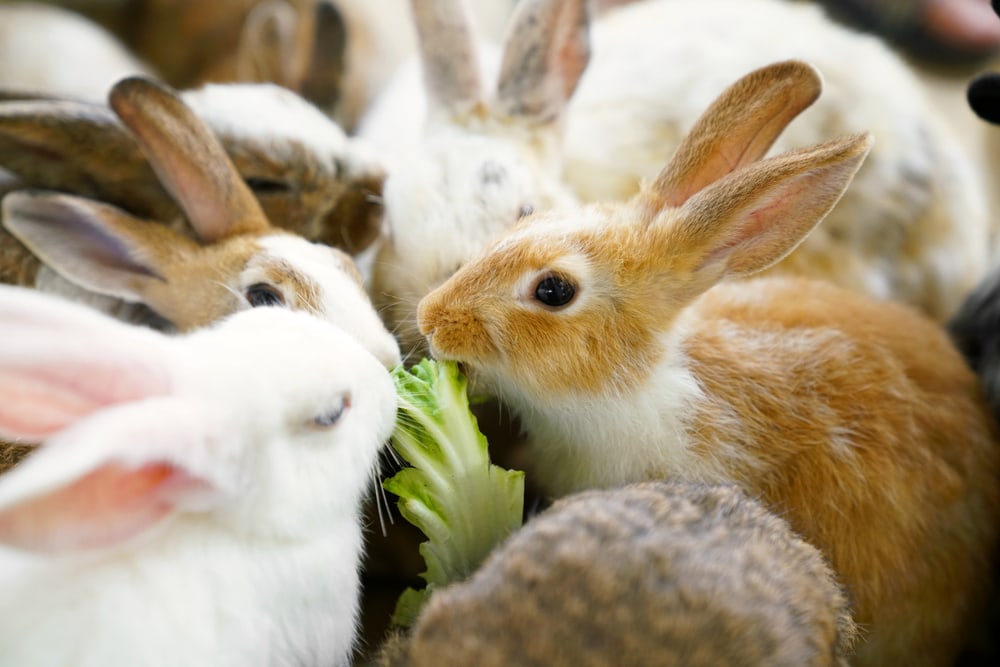
Treats
Treats are a great way to spoil your rabbit occasionally. Still, be wary of what you feed your rabbit, as too many sugars and starches can disturb your rabbit’s digestive system. Commercial, hay-based treats are fine if they’re not overloaded with carbohydrates and sugar, but you can also serve veggies and fruit as treats.

Feeding Baby Rabbits vs Feeding Adult Rabbits
If you have a baby rabbit in your home, a healthy diet for a young rabbit will look much different than one for a fully grown adult. Your baby rabbit will start by drinking its mother’s milk. At 3 weeks of age, you can gradually introduce alfalfa hay and pellets, but the mother’s milk should still be the main source of nutrients.
You can give your baby rabbit small pieces of romaine lettuce but avoid dark leafy greens. After 7 weeks, your baby rabbit’s diet can graduate from its mother’s milk. After 6 months, slowly switch the alfalfa hay for grassy hay. Likewise, reduce the number of pellets you feed your rabbit.

Final Thoughts
Rabbits require a special diet to stay healthy and happy. Except for hay and pellets, most of the components of the rabbit’s diet can be purchased at your local grocery store. While corn is not a suitable food item for rabbits, there are plenty of vegetables that you can and should safely feed to your pet. If your rabbit experiences problems with its diet, contact your veterinarian for an examination and assistance in formulating a diet plan.

